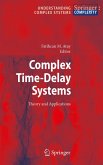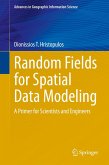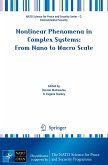This undergraduate text explores a variety of large-scale phenomena - global warming, ice ages, water, poverty - and uses these case studies as a motivation to explore nonlinear dynamics, power-law statistics, and complex systems. Although the detailed mathematical descriptions of these topics can be challenging, the consequences of a system being nonlinear, power-law, or complex are in fact quite accessible. This book blends a tutorial approach to the mathematical aspects of complex systems together with a complementary narrative on the global/ecological/societal implications of such systems.
Nearly all engineering undergraduate courses focus on mathematics and systems which are small scale, linear, and Gaussian. Unfortunately there is not a single large-scale ecological or social phenomenon that is scalar, linear, and Gaussian. This book offers students insights to better understand the large-scale problems facing the world and to realize that these cannot be solved by a single, narrow academic field or perspective.
Instead, the book seeks to emphasize understanding, concepts, and ideas, in a way that is mathematically rigorous, so that the concepts do not feel vague, but not so technical that the mathematics get in the way. The book is intended for undergraduate students in a technical domain such as engineering, computer science, physics, mathematics, and environmental studies.
Nearly all engineering undergraduate courses focus on mathematics and systems which are small scale, linear, and Gaussian. Unfortunately there is not a single large-scale ecological or social phenomenon that is scalar, linear, and Gaussian. This book offers students insights to better understand the large-scale problems facing the world and to realize that these cannot be solved by a single, narrow academic field or perspective.
Instead, the book seeks to emphasize understanding, concepts, and ideas, in a way that is mathematically rigorous, so that the concepts do not feel vague, but not so technical that the mathematics get in the way. The book is intended for undergraduate students in a technical domain such as engineering, computer science, physics, mathematics, and environmental studies.
Dieser Download kann aus rechtlichen Gründen nur mit Rechnungsadresse in A, B, BG, CY, CZ, D, DK, EW, E, FIN, F, GR, HR, H, IRL, I, LT, L, LR, M, NL, PL, P, R, S, SLO, SK ausgeliefert werden.









